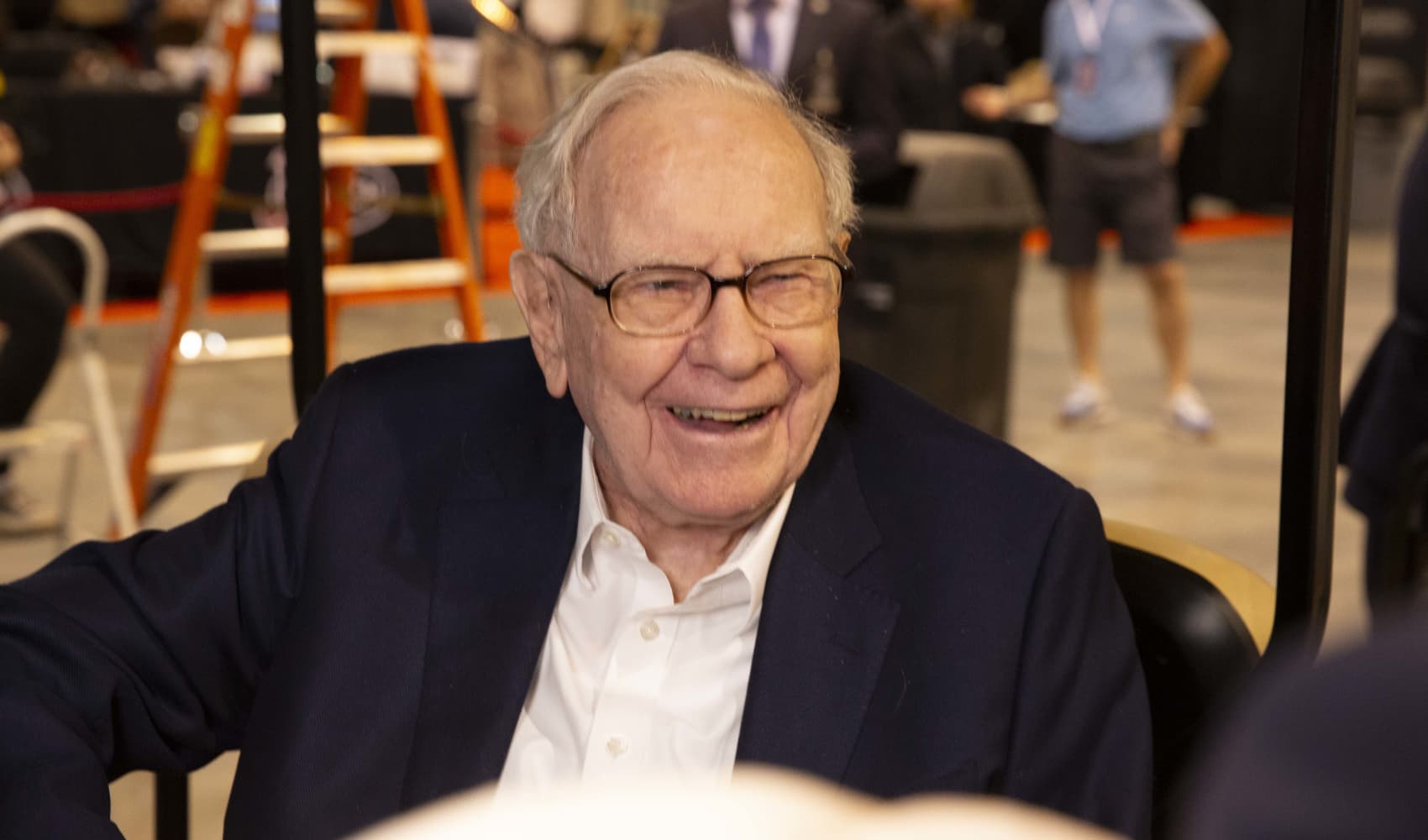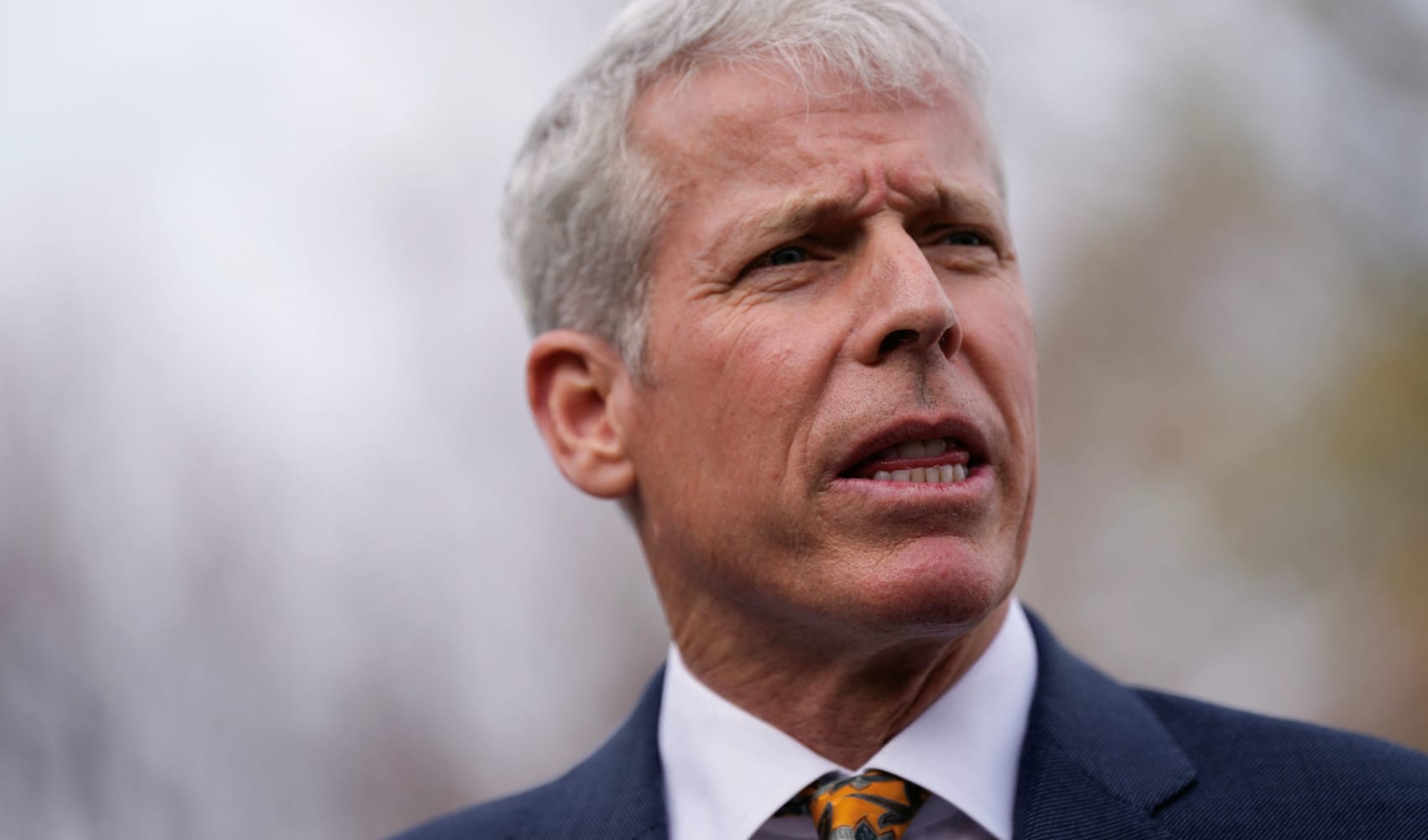
MUMBAI, INDIA – DECEMBER 20: SEBI chairperson, Madhabi Puri Buch during a press conference at SEBI Head Office, BKC, on December 20, 2022 in Mumbai, India. (Photo by Vijay Bate/Hindustan Times via Getty Images)
This report is from this week's CNBC's "Inside India" newsletter which brings you timely, insightful news and market commentary on the emerging powerhouse and the big businesses behind its meteoric rise. Like what you see? You can subscribe here.
The big story
No one is questioning India's sovereignty, as the world's largest democracy marks 77 years of independence from British colonial rule today.
But — in a topic more suited to this newsletter — some investors have this week been querying whether India's markets watchdog is independent as it performs its regulatory duties.
Get top local stories in Philly delivered to you every morning. Sign up for NBC Philadelphia's News Headlines newsletter.
The Securities and Exchange Board of India (SEBI), equivalent to the U.S. Securities and Exchange Commission, was the subject of short-seller Hindenburg Research's latest attack this week. The U.S.-based hedge fund that bet against Adani group companies in early 2023 has now accused the head of the SEBI, Madhabi Puri Buch, of having a financial interest in one of the parties her agency was investigating.
The short-seller said Buch and her husband held stakes in an offshore fund where a substantial amount of money was invested by associates of Vinod Adani, brother of Adani group chairman Gautam Adani. Buch dismissed the report's insinuations as baseless but did confirm that her husband had a stake in the fund.
Unusually, in this instance, Hindenburg — a short-seller that makes money when stocks fall — is attacking a market regulator, rather than a specific stock.
Money Report
Except, it kind of is.
On Monday, the first day of trading after the allegations were made over the weekend, Adani group companies initially lost more than $13 billion in market value. By the end of the day, the group's market losses were at $2.4 billion — or 1.2% — while the Nifty 50 index closed flat.
And there are even wider potential implications.
Together, Adani Ports and Adani Enterprises constitute just under 2% of the Nifty 50 benchmark, meaning they can drive the index as a whole — and influence broader investor sentiment.
This means Hindenburg's allegations pose a problem for India's wider investor base, as it affects the country's reputation for regulatory fairness and stability. And all of this comes as India is trying to contrast itself with China, whose rule-makers and enforcers have been criticized for making somewhat arbitrary decisions in recent years.
"The accusations can have a harmful impact if they spark worries over institutional credibility at a time when foreign inflows are volatile and concerns are rising over expensive valuations of the Indian stock market," Shumita Deveshwar, chief India economist at TS Lombard, told CNBC's Inside India.
"The key imperative here for the authorities – whether it is the current SEBI chief or the government at the center – should be to ensure that the stock market regulator's image as an independent, credible institution is upheld."
One way to improve that image is through an "audit that is perceived to be fair," Deveshwar added. The economist also pointed out that as long as the SEBI, as an institution, continues to safeguard small investors, as it has done recently by warning about bubbles, the "fallout of the allegations will be limited."
Others, too, have suggested that the market regulator is more than an individual. The allegations against its chief "shouldn't have much impact on valuations because SEBI processes are institutionalized and are not tied to a specific person," said Rajeev Agrawal, a U.S.-based hedge fund manager and managing partner at DoorDarshi India Fund.
However, investors should not forget that India is an emerging market and carries some inherent risks as a result, according to Mohit Kumar, chief financial economist at Jefferies.
Kumar said that Jefferies remains "structurally bullish" on India despite the accusations against the chief market regulator, as the country has a "growth story with favorable demographics".
"We will get episodes where there are concerns around individual companies but I don't think it derails our medium term bullish view on India," he added.
Need to know
Indian EV startup Ola Electric IPOs with $4.8 billion valuation. Shares of the SoftBank-backed electric scooter maker have risen 45% above its debut price. The company shipped its first product only about two and a half years ago. By 2030, electric two-wheelers are expected to account for 60% to 70% of all new scooter sales in India. Two-wheelers are the most popular means of transport in the country.
India launches app to help avoid wild elephants. The northeastern state of Assam in India has launched a mobile app that warns people of incoming herds of wild elephants in an effort to reduce violent encounters between humans and the land giants. Clashes between humans and elephants are not uncommon in India, and have continued to rise in recent years. Elephants are turning more aggressive as their habitats and natural corridors get downsized to make way for urban development.
Prime Minister Narendra Modi outlines India's aim to host 2036 Olympics. CNBC-TV18 reported that Modi on Thursday said the country is leaving no stone unturned in its efforts to host the Olympics in 2036. Along with India, several other nations such as Saudi Arabia, Qatar and Turkey are positioning themselves as strong contenders to host the sporting spectacle. The International Olympic Committee (IOC) is expected to decide the host only next year after holding its elections.
What happened in the markets?
Indian stocks lost steam this week. The Nifty 50 index closed at 24,143.75 points, nearing a loss of 1% for this week. The index has risen 11.10% this year.
Indian government bond yields continue to fall steadily. The benchmark 10-year is trading at 6.86%, two basis points lower than last week.
On CNBC TV this week, Kranthi Bathini, director of equity strategy at WealthMills Securities, said stocks have been on a "liquidity-led rally." Bathini said the Nifty 50 could reach 30,000 points — about 25% above current levels — "much sooner" than 2030.
Meanwhile, Herald van der Linde of HSBC said India and Indonesia have domestic-oriented stock markets and economies, which help them stay "somewhat insulated" from all the global volatility.
What's happening next week?
August 20: Sweden interest rate
August 22: India PMIs, Eurozone PMIs, UK PMIs, U.S. PMIs






